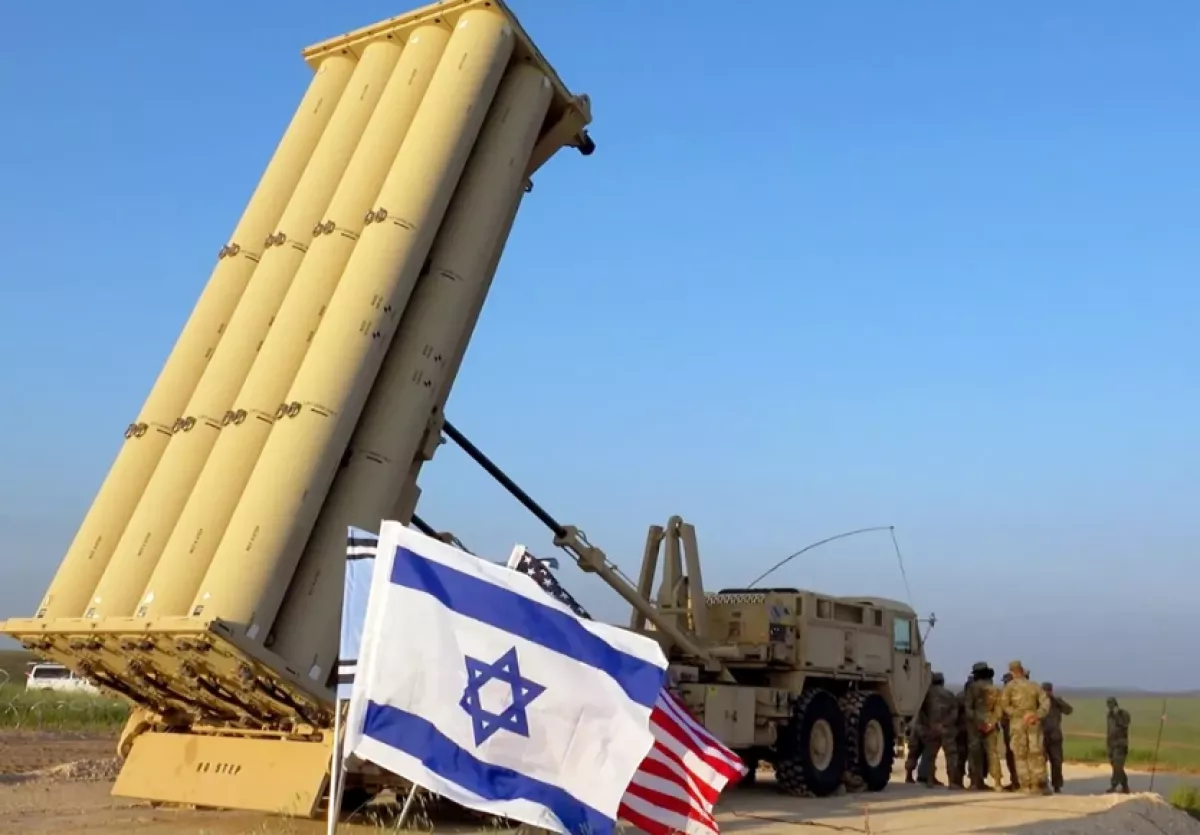America’s ironclad embrace of Israel Other allies left waiting
The Pentagon has announced the deployment of the advanced THAAD missile defence system in Israel, which will be operated by 100 American servicemen. This information was also reported by the Washington Post. According to Pentagon officials, the system is expected to arrive in the coming days and "underscores the United States’ ironclad commitment to the defence of Israel.”
In the past, America has intercepted Iranian missiles aimed at Israel, making it one of the parties in the larger Middle Eastern Iran-Israel conflict. The new decision to deploy such a powerful missile defence system as THAAD in Israel is meant to send a message to Iran: "Don't touch Israel!" At the same time, the US has deployed several strike carrier groups in the Middle East and has officially issued threats to Iran and its allies, such as the Lebanese Hezbollah, warning them of possible consequences for attacks on Israel.
The US coddles Israel like a mother with her child, providing it with cutting-edge weaponry while begging not to strike too hard against Iran until after the elections. The Washington Post informed its readers that such an agreement was apparently reached during a phone conversation between Israeli Prime Minister Benjamin Netanyahu and US President Joe Biden. In exchange for the delivery of the THAAD missile defence system, the Israeli prime minister stated that his country was willing to carry out only limited strikes against military targets, but not against oil or nuclear facilities in Iran.

Agreeing to limit strikes against Iran until the American elections in November is crucial for the Democratic administration in Washington. An Israeli strike on Iran's oil industry would lead to a surge in oil and gasoline prices, impacting the economy and the popularity of the ruling Democratic Party in the US A strike on Iran's nuclear program would erase all conceivable red lines and sharply escalate the conflict between Iran and Israel, which could, in turn, involve the US—Israel's strategic ally—in the war. Both options are unacceptable for Biden and his party in the lead-up to the elections.
At the same time, the US is putting so much effort into caring for Israel that it seems to overlook other emerging problems among its allies. Today, Americans are close to losing in Ukraine. This could have far more serious consequences for US strategic interests than the Middle East. Conversely, the unfolding situation gives hope to America’s adversaries.
The loss of Ukraine could mean the prospect of losing its ally—Taiwan—for the US-Israeli expert and former adviser to multiple governments, Alon Pinkas notes that the Biden administration should have used Ukraine as a model example for China. The message could have been, "Look at us, the Americans; we’re tough—we’ve given Ukraine everything it needs to win. Chinese leaders, think twice about attempting to gain control over Taiwan."

However, this example works both ways. If the US shows weakness in Ukraine by sharply limiting arms supplies to the country, it could actually encourage China to resolve the Taiwan issue through forceful means. Should the US lose in Ukraine out of fear of escalation, it will likely become even more apprehensive about escalating tensions with China. In this scenario, a loss of Ukraine or a significant portion of it—along with its defeat in the war—would be seen in Beijing as a signal for a forceful resolution of the Taiwan issue, given that China views Taiwan as an integral part of its territory.
Furthermore, as noted by leading Russian sinologist Alexander Gabuev, if the US loses Taiwan, its influence in the Indo-Pacific region will collapse like a house of cards, leading to a loss of superpower status. Seeing America as weak and unable to provide protection, many countries may voluntarily fall under China's influence. This is particularly concerning given that Taiwan controls 60% of the global semiconductor market and that approximately 40% of global trade passes through the Taiwan Strait.
Currently, the US is extremely preoccupied with Israel’s fate, to the extent that it seems less concerned about its other allies. This singular focus could have significant repercussions for the US and the entire global order it has established.








